|
My earliest memories are steeped in the world of the military. My dad was in the Army. I loved to watch him shine his shoes and ready his uniform, while I explored the various pins and badges that went on his hat and shirt. I grew up shopping on base, at the PX (Post Exchange), and most of my early playmates had fathers in the military. I watched with pride as the MP's would salute my father when we drove on and off base. All of my three siblings were born in Army hospitals. Like most people my age, both of my grandfathers also served in the Army during World War II. Military service was commonplace in my life. Even my dad's two brothers were in the Air Force and the Navy, so not only did I learn the states and their capitals - I also learned the names of their military bases while keeping track of where my cousins were living. This is all to say that the military played a large role in my life, and I owe the upward mobility of my family to the military participation of my family members. That said, as a genealogist (as well as a pacifist), I feel very conflicted about wars. I love the fact that we are able to access rich information from military service records, draft cards, and bounty land records. However, in addition to the devastating loss of life on all sides, the loss of records due to war - whether it is a Georgia courthouse burning down during the Civil War, a church in Scotland's records being destroyed during a battle for religious control, or an entire Jewish community having its records wiped out during the Holocaust - is heartbreaking to consider. Although my paternal grandpa served honorably, and was proud of his service, he was recorded saying that he was not "military minded," and that his initial interest in serving in the Army was motivated more by the promise of having more clothing to wear, than a desire to fight. He also knew about the dangers of war, having grown up hearing stories from his mother about his uncle Frank, who served in World War I.
I have listened to audio recordings of my great-grandma talking about the last time she saw Frank.[4] He had told her that if he were drafted, he knew he would never come back. She saw him off at the train station in Richfield, Utah on Thursday, the 27th of June, on his way to Camp Lewis in Washington State.[5] Decades after the fact, her voice broke with the emotion of recalling his last words to her: "I'll never see you again." It was true, he never would. Private Frank Jorgenson was killed in action in France on 12 October 1918, just two short months after departing from U.S. soil, and one month before the war ended.[6] Ida never fully recovered from his loss. I can only imagine how Ida felt when her son, my grandfather, was called up and sent to Fort Lewis during World War II. She must have been terrified to lose her son in the same way that she lost her brother. Ida ended up sending four of her sons to fight in that war - fortunately all of them returned home safely. During WWII, a cosmic turn of events brought my grandfather to Argonne, France - the same place where Frank died. The photos below are from his visit to Frank's grave in the Meuse-Argonne American Cemetery in 1944 or 1945. My grandpa was three years old when Frank died. As you can see from the photo, it must have been very meaningful to visit the grave of his uncle - the man for whom his mother had grieved most of his life, and whose body never returned home. I'm sure it held even more meaning since he had been in the midst of surviving the fighting in France since his arrival at Normandy in June 1944. At some point Frank's 40th Division must have been combined into the 77th Division, which had already been fighting in France since April.[9] Frank's final assignment was in Company A of the 308th Infantry Regiment of the 77th. This regiment was part of what became famously known as the "Lost Battalion," which was hit very hard as part of the Meuse-Argonne Offensive in October 1918. A comprehensive history of the 77th and a list of its casualties, including Frank, can be found here. What is amazing is that he lived past the very worst of the fighting (2-8 October), only to be killed in action just days later, on October 12th. As sad as it has been to research my great-great uncle Frank, I am grateful for records relating to his military service. While I knew a fair amount about the history of his early years, the only information I have been able to find about him as an adult thus far is from these records. I know how much his loss affected his family, but I have appreciated being able to learn more about him through his military service. May he, and all of our fallen soldiers, live on in our hearts and minds. *Written with appreciation to Idajean Aldous for her Memorial Day post about Frank on our Ogilvie family Facebook page (29 May 2017), which inspired me to learn more about his service. 1. "U.S., Army Transport Service, Passenger Lists, 1910-1939," database with images, Ancestry (www.ancestry.com : accessed 2 June 2018), entry for Erick F Jorgenson, departure date 9 August 1918, no. 73(173); citing National Archives and Records Administration (NARA), "Records of the Office of the Quartermaster General, 1774-1985," Record Group 92, Roll 516.
2. "U.S., World War I Draft Registration Cards, 1917-1918," database with images, Ancestry (www.ancestry.com : accessed 2 June 2018), card for Eric Frank Jorgenson, no. 25 (penned), Local Draft Board I, Richfield, Sevier County, Utah; citing NARA, "World War I Selective Service System Draft Registration Cards, 1917-1918," Record Group M1509, Roll 1984054 . 3. "Call to the Colors Reaches Many Boys" Richfield Reaper (Utah), Saturday, 29 June 1918, page 1; online database with images, Utah Digital Newspapers (https://newspapers.lib.utah.edu : accessed 2 June 2018). 4. "Memories of Kendal M. Ogilvie's Early Years," Ida Jorgensen Ogilvie, audio recording, discussion of Frank Jorgenson approximately at minutes 13 and 20 of 48 minutes, recorded by B. Eileen Ogilvie Ipson, date unknown; digital copy in personal collection of the author, 2 June 2018; and "Childhood Memories of Ida Jorgensen Ogilvie," Ida Jorgensen Ogilvie, audio recording, recorded by B. Eileen Ogilvie Ipson, date unknown; author does not hold digital recording, but it has been incorporated into the film "Ida," created by Edward Ormsbee, discussion of Frank Jorgenson at approximately minute 49 of 53 minutes, viewed on YouTube (https://www.youtube.com/watch?v=2WkQW0lFd_s : accessed 5 June 2018). 5. "Call to the Colors..." Richfield Reaper (Utah), Saturday, 29 June 1918, page 1. 6. Erick F Jorgenson, page 5, Idaho World War I Dead, AEF (Armed Expeditionary Forces), Series: "Compiled Data on Casualties of the American Expeditionary Forces by State or United States Possession, 1917-1919," Record Group 407: Records of the Adjutant General's Office, 1905-1981, National Archives at College Park, College Park, Maryland; imaged online, National Archives Catalog (https://catalog.archives.gov/id/34389584 : accessed 4 June 2018). 7. "News Items Given Here in Brief," Franklin County Citizen (Idaho), 21 November 1918, page 4, column 3; online database with images, "Digital Archives of the Franklin County Citizen," Community History Archive, Advantage Preservation (http://franklincounty.advantage-preservation.com : accessed 3 June 2018). 8. "Mountain States have 29 Names in Casualty List" Salt Lake Herald (Utah), Saturday, 21 November 1918, page 6; online database with images, Utah Digital Newspapers (https://newspapers.lib.utah.edu : accessed 2 June 2018). 9. History of the Seventy Seventh Division: Designed and Written in the Field - France, The 77th Division Association, 1919, New York City, New York, Death of Private Eric F Jorgenson, page 119; digital copy online, ProQuest: ExLibrisRosetta (https://dcms.lds.org/delivery/DeliveryManagerServlet?dps_pid=IE928497& : accessed 2 June 2018).
0 Comments
Leave a Reply. |
AuthorI'm Ginger Ogilvie, and I am absolutely, hopelessly hooked on genealogy! Archives
February 2023
Categories
All
© Keep Family History Services 2024
|
Proudly powered by Weebly

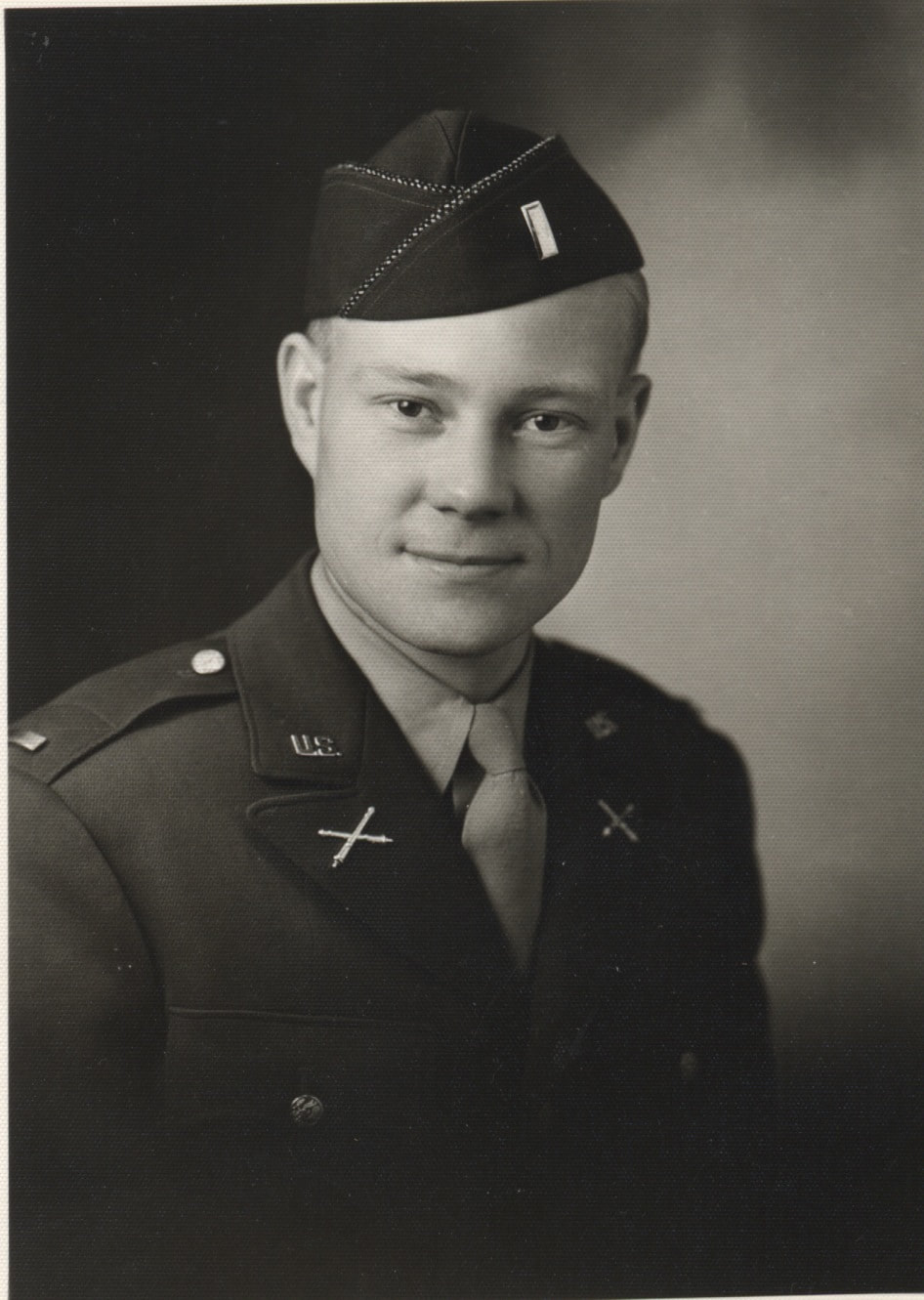
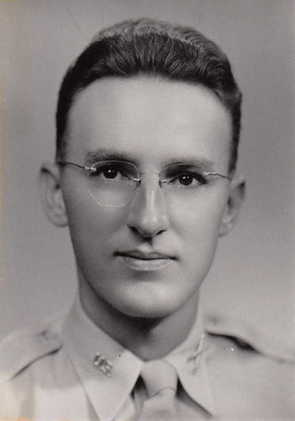
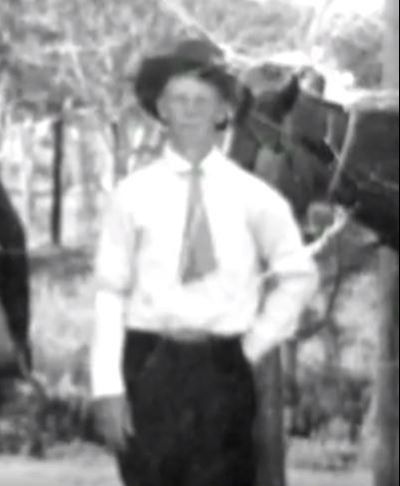

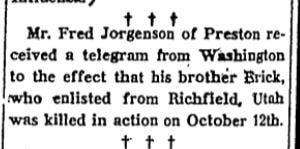
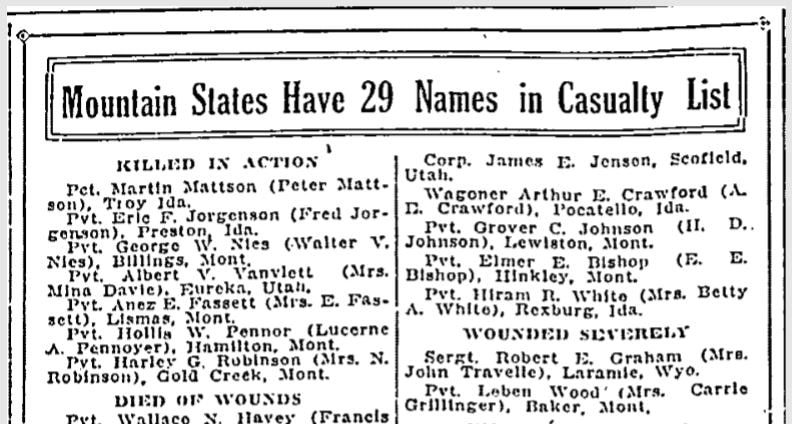
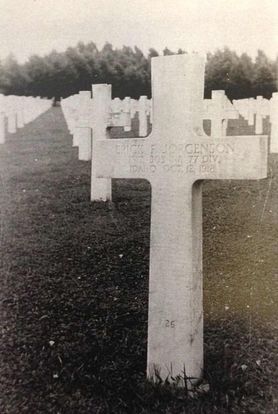
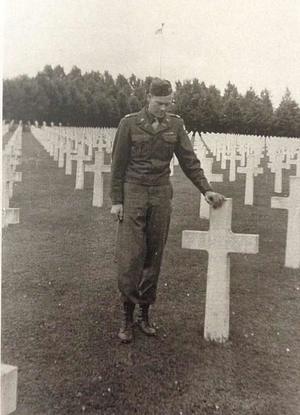
 RSS Feed
RSS Feed